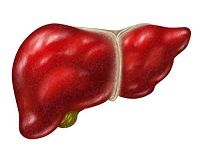Article
Study Finds DAAs Risky in Advanced Liver Disease
Author(s):
Direct acting antivirals have been miracle drugs for many, but a Spanish study found they can make things worse in patients with advanced liver disease.

The new direct-acting antivirals for hepatitis C infection have been life-changing for many patients. But according to researchers in Spain, the good news these drugs can offer may come too late for patients with advanced cirrhosis.
In a study of 843 patients presented this morning at the International Liver Congress in Barcelona, Carlos Fernandez Carrillo, MD, of the Liver Unit of Puerta de Hierro-Majadahonda University Hospital in Madrid, and colleagues said that the costly drugs may not work on patients with advanced illness and can lead to severe adverse events and deaths.
Following treatment with DAAs, these patients were more likely to die during treatment or within 12 weeks of completing treatment.
“The results of our study clearly show that those patients suffering from very advanced liver disease may not obtain benefit from these treatments,” Carrillo said.
It may be better to “let the condition run its natural course” instead of intervening, added Jose Luis Calleja, MD co-author of the study.
The researchers looked at records of 843 subjects in a Spanish HCV registry, governed by the Spanish Association for the Study of the Liver and the Networked Biomedical Research Centre for the Study of the Liver and Digestive Diseases. All patients had clinical symptoms of advanced liver disease, had cirrhosis, and had not received a liver transplant during or within 12 weeks of completing treatment.
They found that in patients with a baseline Child-Pugh-Turcotte (CPT) score of B/C ,indicating advanced cirrhosis had lower sustained virologic response (SVR), more relapses, and more severe adverse events than those with a CPT score of A (mild cirrhosis) patients who got the drugs (77% vs. 94% ITT, p<0.001; a5% vs. 5%, (p0.001; 50% vs. 12%, p<0.001 respectively.)
There were also more deaths in the advanced cirrhosis group, with 11 patients with advanced cirrhosis dying vs. 4 in the group with mild cirrhosis.
In addition, 25% of patients with the most severe disease, as measured by the MELD score, died compared to 1.6% of the other patients.
Commenting on the findings, European Association for the Study of Liver Secretary General Laurent Castera urged hepatologists to “Weigh up the risks and benefits of treating patients with late-stage disease and have open and honest discussions with their patients as to the best course of treatment for them.”




